It’s 9.30am, and I’m running late to the Social Service Office (SSO) @ Taman Jurong. It’s hardly an ideal workplace location, tucked away in a heartland neighbourhood 10 minutes from Lakeside MRT.
Bolting out of the cab, I enter a new and modern-looking centre, complete with glass panels and a high ceiling.
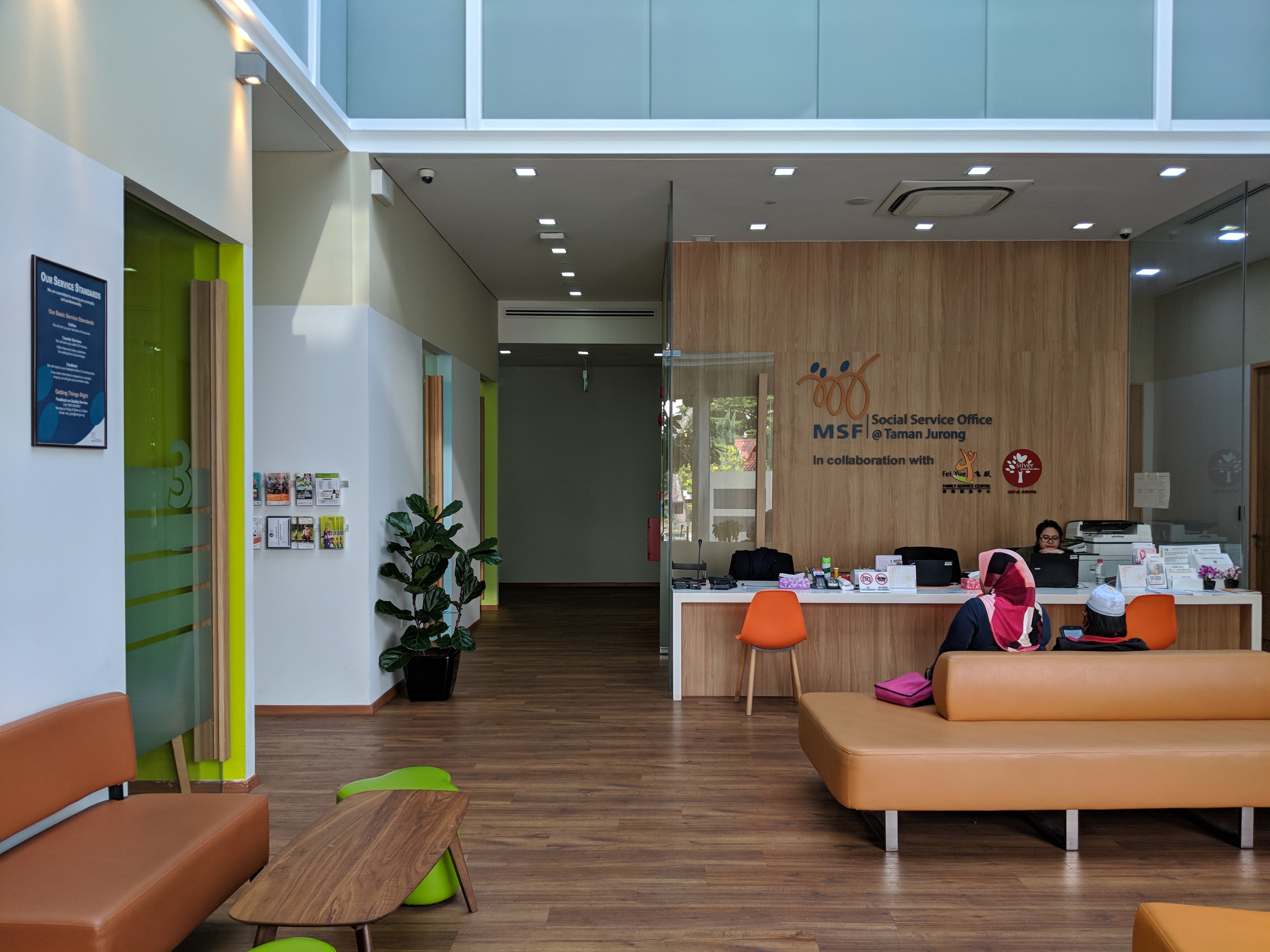
Nice. And absolutely not what I was expecting.
While waiting to meet with Nurul, a Social Assistance (SA) officer, I realise the place reminded me of a medical centre. Wide, open spaces that put people at ease.
I’m here to find out what officers do daily to help those in need. Nurul, a SA officer of 3 years, quickly gets down to business explaining what social assistance is.
A quick presentation and I understand the heartland location. All 24 SSOs are strategically located where help is most required -- in HDB neighbourhoods, for those who need social assistance.
It figures. Accessibility to help is crucial if your working hours are not regular, or if the money required for public transport is a concern -- both problems many low-income households face.
So what is social assistance?
Essentially, it’s help provided to struggling low-income individuals and families, to encourage them to get back on their feet.
Beyond financial assistance, basic needs such as caregiving for children or seniors are also addressed.
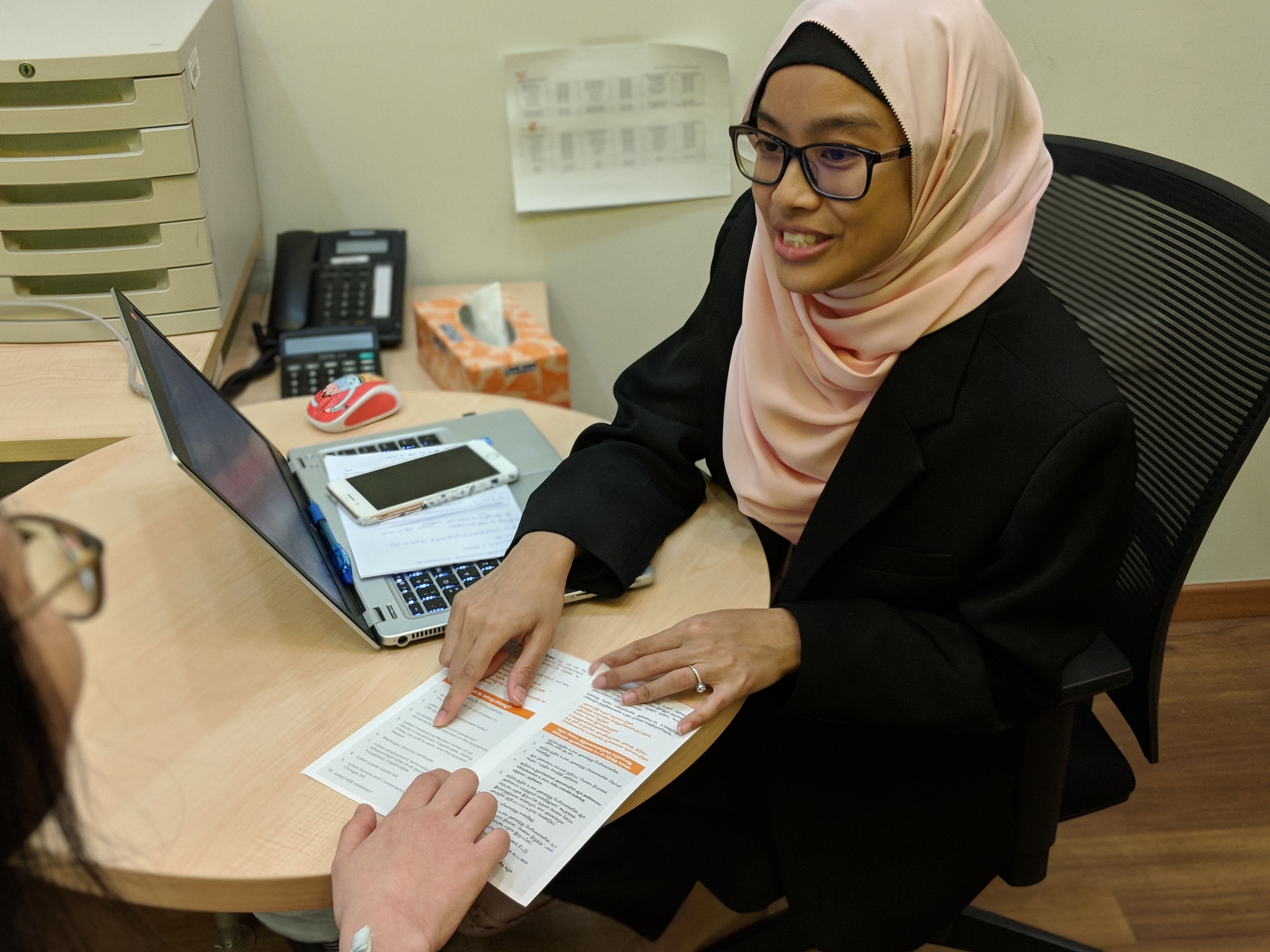
When a person (client) comes to the SSO seeking help, Nurul’s job is to find out what problems they are facing, assess their eligibility for ComCare Assistance, help them search for a job, and link them with other community resources where applicable.
Most clients require temporary assistance to tide over a difficult period – retrenchment, caregiving issues and medical conditions affecting work are common situations.
At the same time, the SA officer also helps the clients with mapping outcome goals and steps to get there.
Throughout my day at the office, there is a mantra I hear repeatedly:
The ultimate goal is to help clients resolve their issues and regain financial independence.
Fair enough.
But how exactly do they help people?
After only a slightly better understanding of what Nurul does, I’m given a chance to sit in for a walk-in interview.
The session is held in a two-doored interview room unique to this SSO -- designed to ensure officers can leave the room safely if ever a session gets heated, or worse, violent.
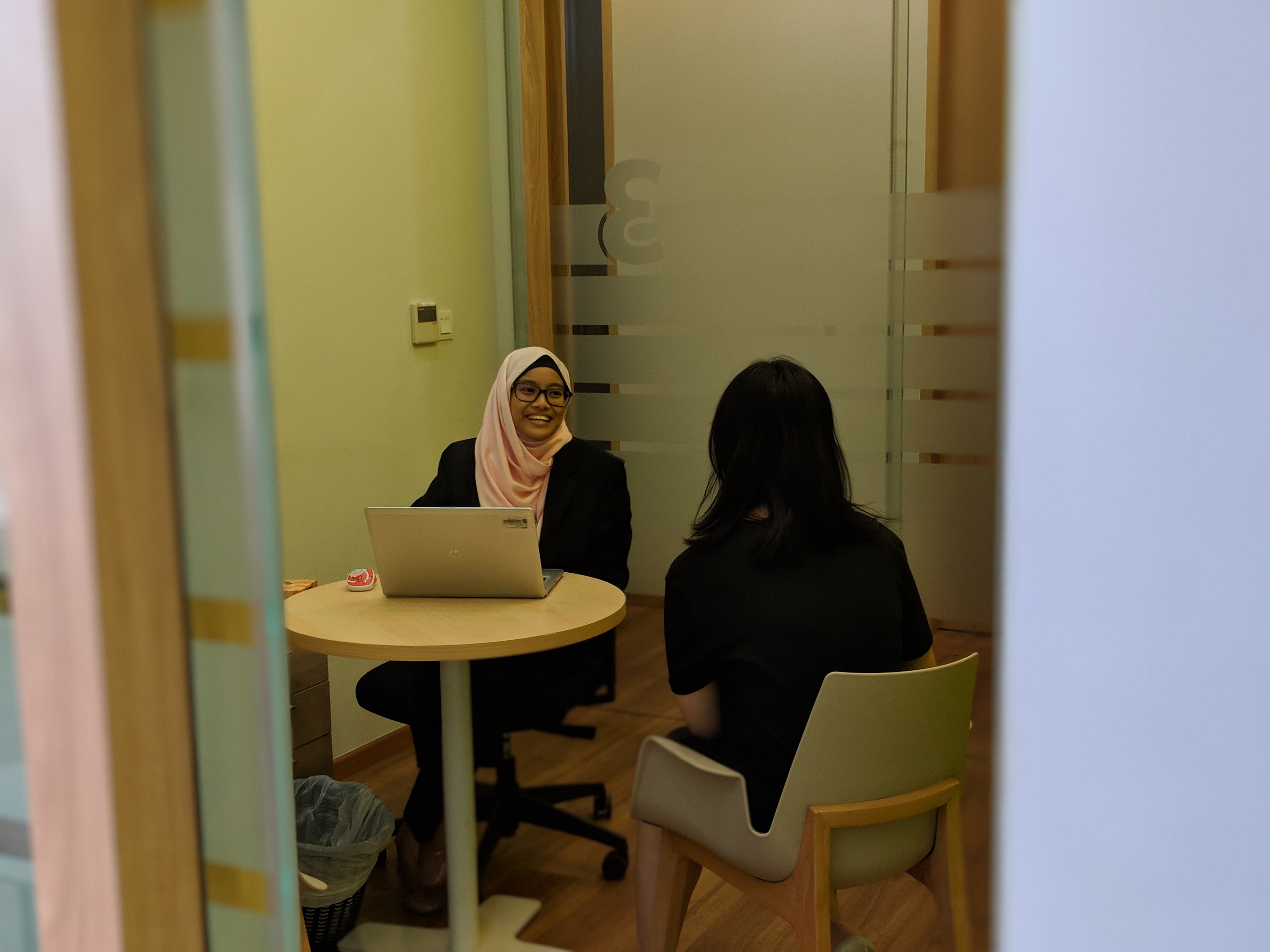 Interview rooms in Taman Jurong SSO have 2 doors for safety reasons. All SA officers in Singapore also attend self-defense lessons for protection in case tensions escalate.
Interview rooms in Taman Jurong SSO have 2 doors for safety reasons. All SA officers in Singapore also attend self-defense lessons for protection in case tensions escalate.
Soon after the session begins, I realise that the interview is intricate work. It starts off with Nurul easing the client into revealing their situation.
*“I’m worried I can’t feed my family after next week.” “I have no job and can’t pay for utilities.”
Then, like a doctor diagnosing her patient, she carefully unravels each detail to get the big picture.
*“Where is your spouse?” “When did you last work?” “How much do you spend on groceries each week?” “How much allowance do you give your child?” “How is your relationship with your parents?”
Sharing such private information creates an emotional charge in the room, but Nurul is respectful and gentle. Throughout the 45 minute session, not once was the client asked to repeat a response.
The interview reveals the client’s strengths and resources at hand, which determines the kind of help needed -- for support other than financial aid or employment assistance, SA officers refer them to other agencies (i.e., HDB, MOE) or community organisations (i.e., Family Service Centres) that can help.
“Arrangements with agencies like Family Service Centres (FSCs) mean that FSC clients don’t have to repeat their story and be assessed again when referred to the SSOs for financial assistance. This streamlines the process for the clients.”
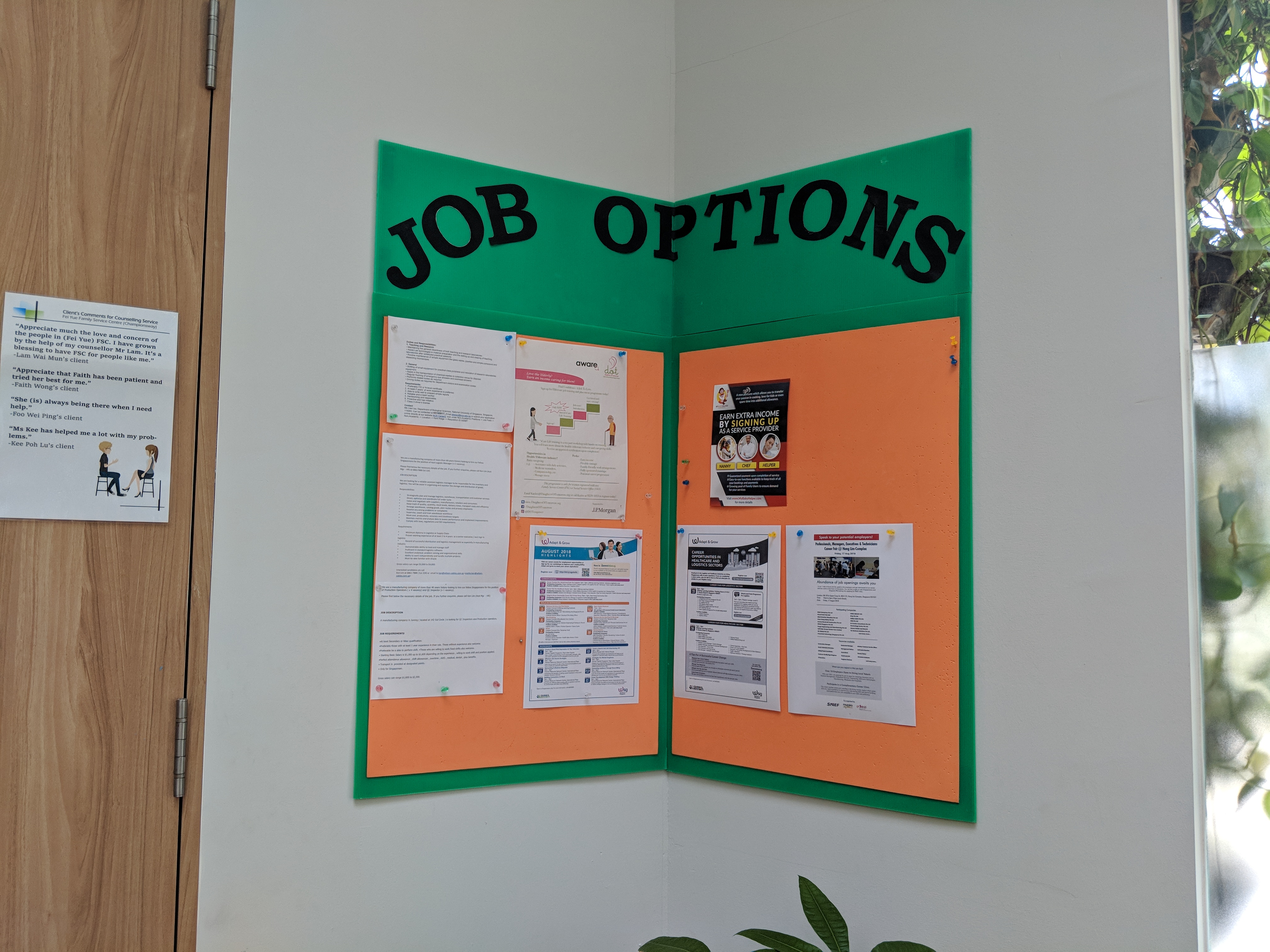
Within a few weeks, clients are informed of the assistance they may receive. Interim assistance, if needed, may be provided while their application is being processed.
From then on, SA officers follow the progress of the client -- recommending jobs for those who need employment assistance and getting updates on client’s family situation.
The lakeside branch is one of five SSOs where SA officers also double up as job coaches. Other SSOs work with Workforce Singapore or Employment and Employability Institute to assist clients with employment needs.
“When we help you, you also need to help yourself,” says Nurul, concluding the interview.
What happens when more than financial and employment aid is needed?
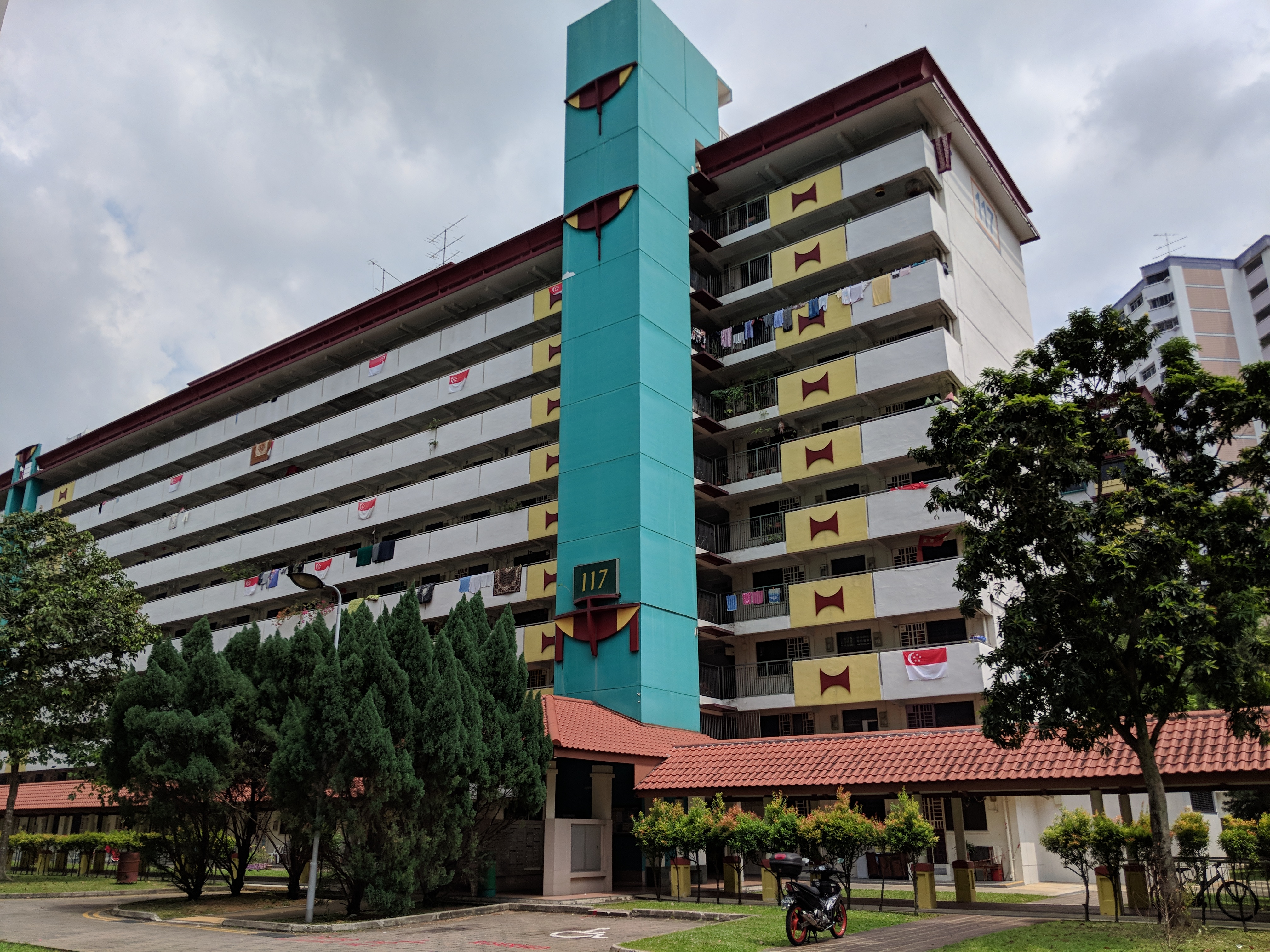
Other than linking clients with relevant agencies, the SSO also maintains a relationship with community partners -- so there is a clear idea of resources available in the neighbourhood that can help clients.
For example, collaborating with childcare centres to encourage mothers from low-income families to find work, and partnering market stall-owners to offer food coupons to those on financial assistance.
Taman Jurong SSO is also one of two integrated SSOs with a Family Services Team (FST) in the same space -- so clients can access family services in the same office.
The last activity of the day is a follow-up appointment with a family already receiving financial aid. The case is complicated -- several of their relatives are also clients and there are existing family issues.
Before the appointment, the SA officer and Fei Yue FST case worker who both work with the client update each other with new information and developments in the case.
Both are armed with genograms to keep track of the family relationships; the updates are full of fresh family drama that brings about new challenges to be addressed.
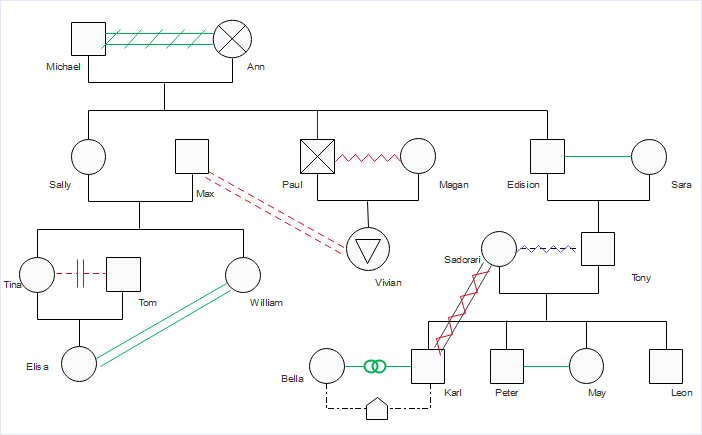 Example of a genogram, which is a pictorial display of a person’s family relationships. Image is a sample for illustration purposes. Source
Example of a genogram, which is a pictorial display of a person’s family relationships. Image is a sample for illustration purposes. Source
“What is the difference between what you and the FST case worker do?” I ask. The answer is fairly simple. SA officers work with the client on their financial and employment needs while the FST case worker looks into the family’s psycho-emotional needs.
The appointment is a joint counselling session. It’s obvious rapport has been built -- the sharing flows comfortably.
Both SA officer and FST case worker don’t shy away from tough questions, and the client responds just as forwardly, helping them help him.
“They come because they have nowhere else to go”
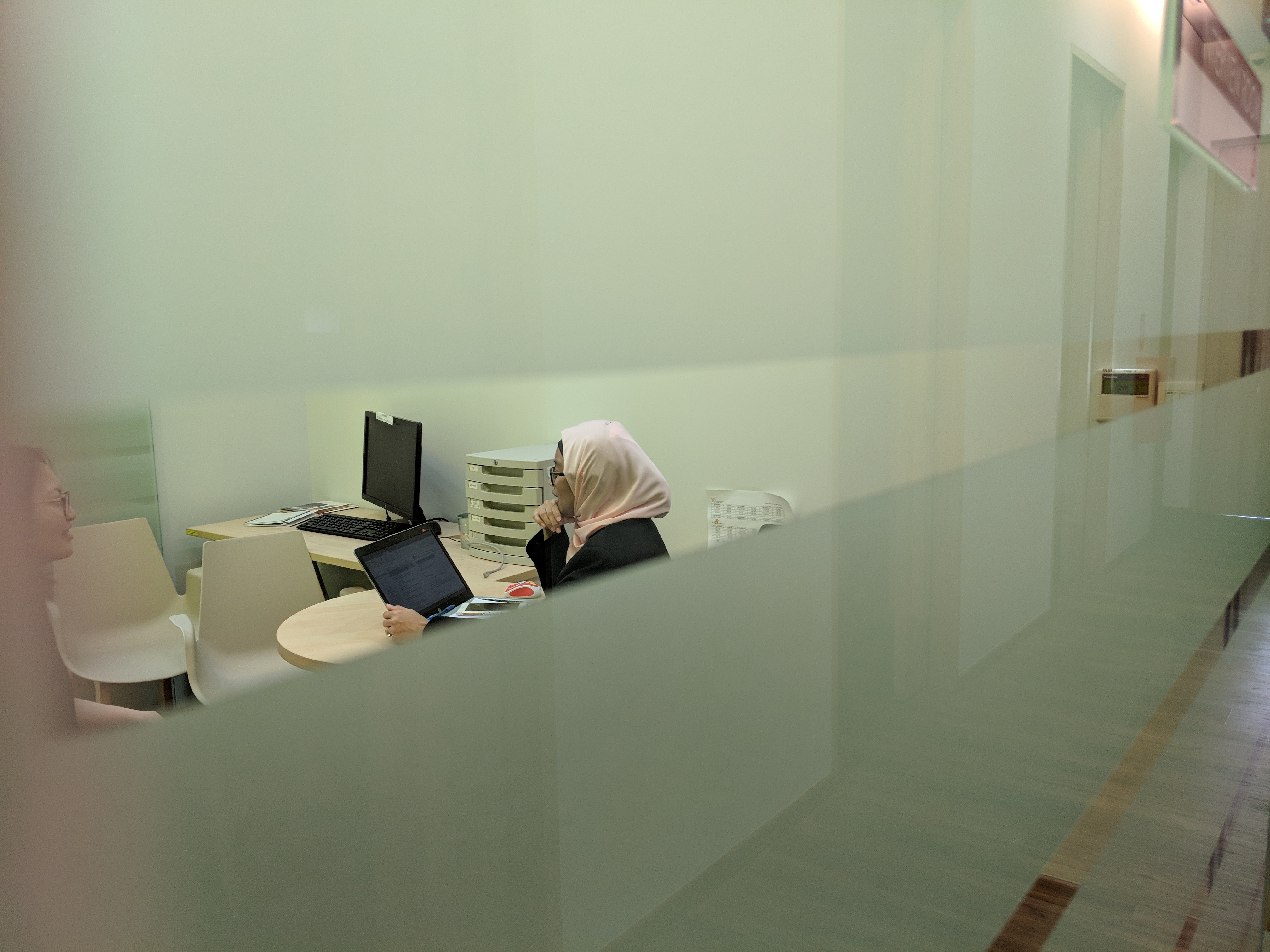
By the end of the day, I agree that SA officers wear many hats. Having to be mentors, lobang kings, marriage counsellors, listening ears and masters of persuasion simultaneously while facing clients daily is a lot of emotional labour.
“Do you need a particular disposition to be an SA officer?” I ask Nurul.
“We all have different personalities but share common traits -- being composed, calm and having empathy. It’s not an easy step for clients to take, coming to the SSO. They come because they have nowhere else to go.
But our clients trust us to help them, and when I see my client resolve their issues, it really motivates me to keep on going.”
---
If you require help, there are always avenues of support available. You can reach out to the SSOs for assistance, by either calling ComCare Call at 1800-222-0000 or approaching your nearest SSO (locations available via www.msf.gov.sg/ssolocator)
*questions are examples and not from the actual interview
All images are staged and taken by Tsiuwen Yeo
This sponsored post by Ministry of Social and Family Development was an eye-opener for the writer.
If you like what you read, follow us on Facebook, Instagram, Twitter and Telegram to get the latest updates.